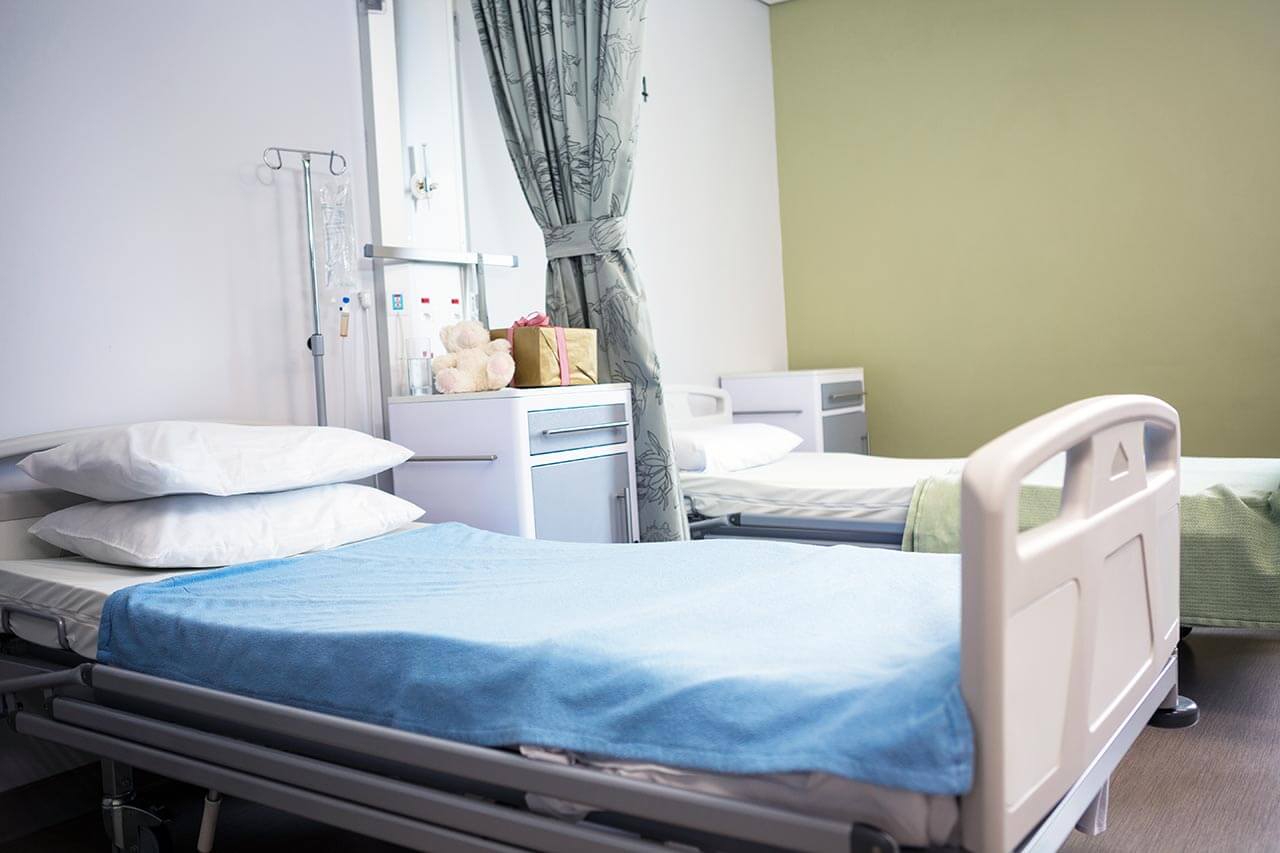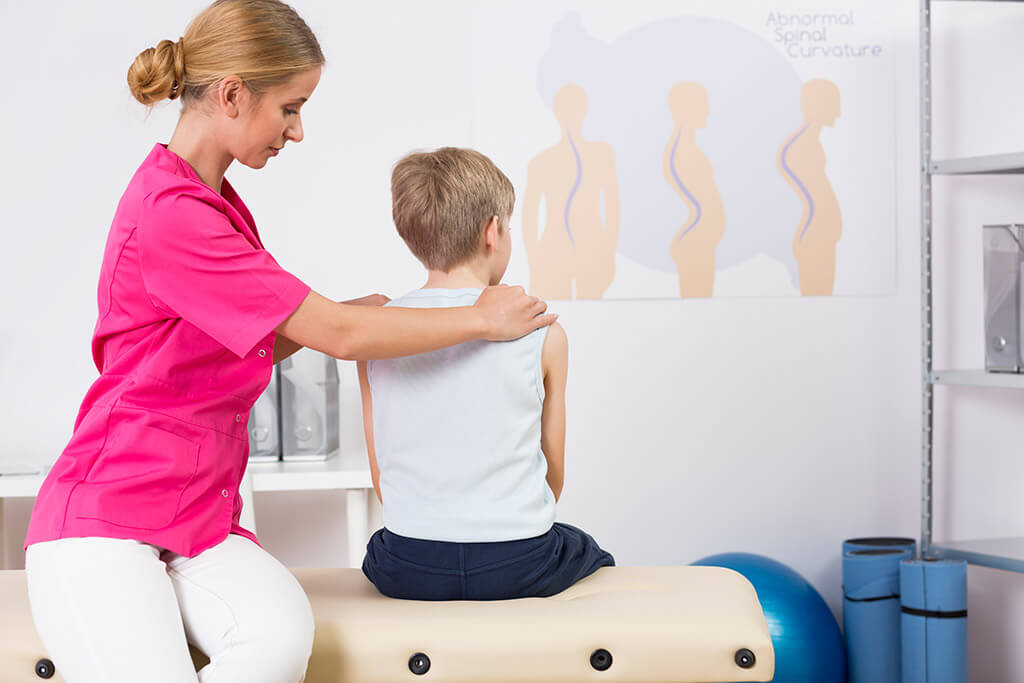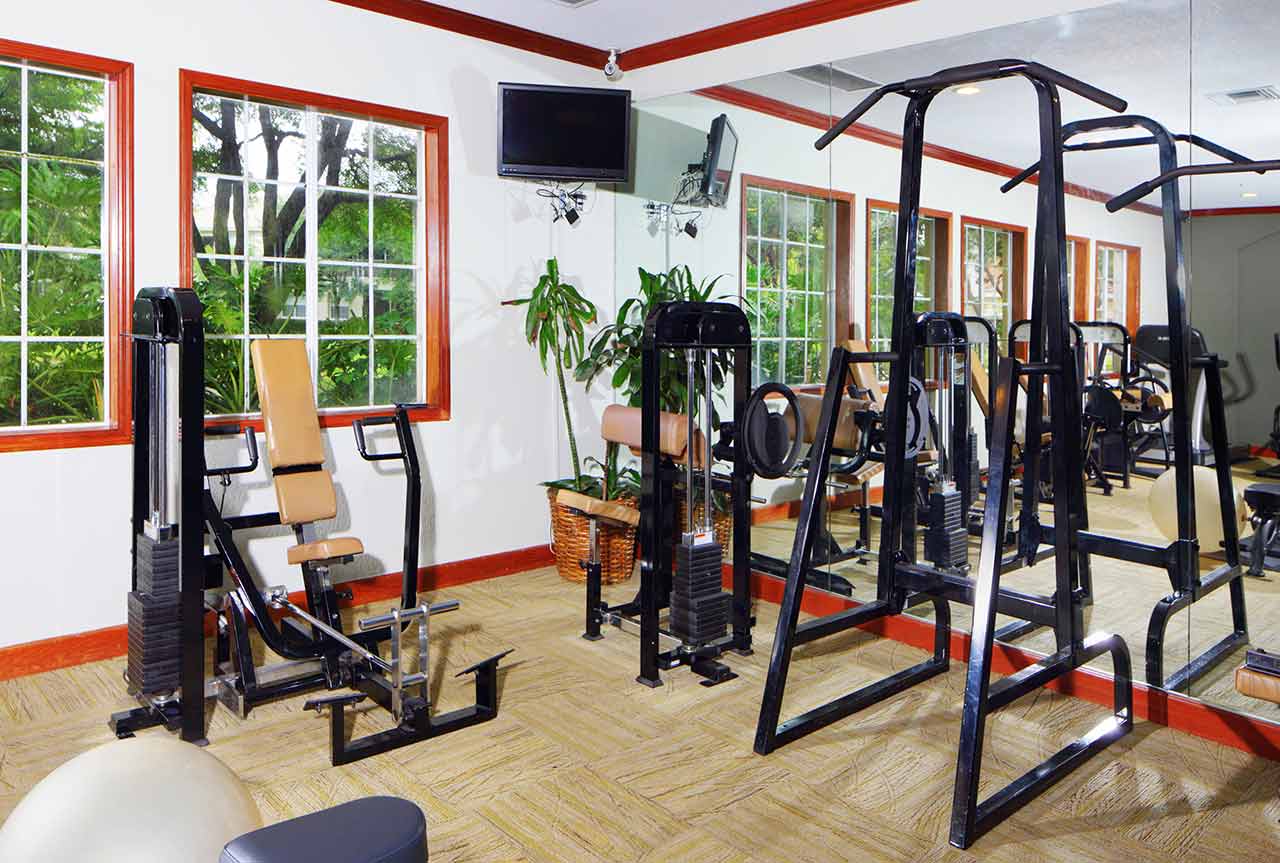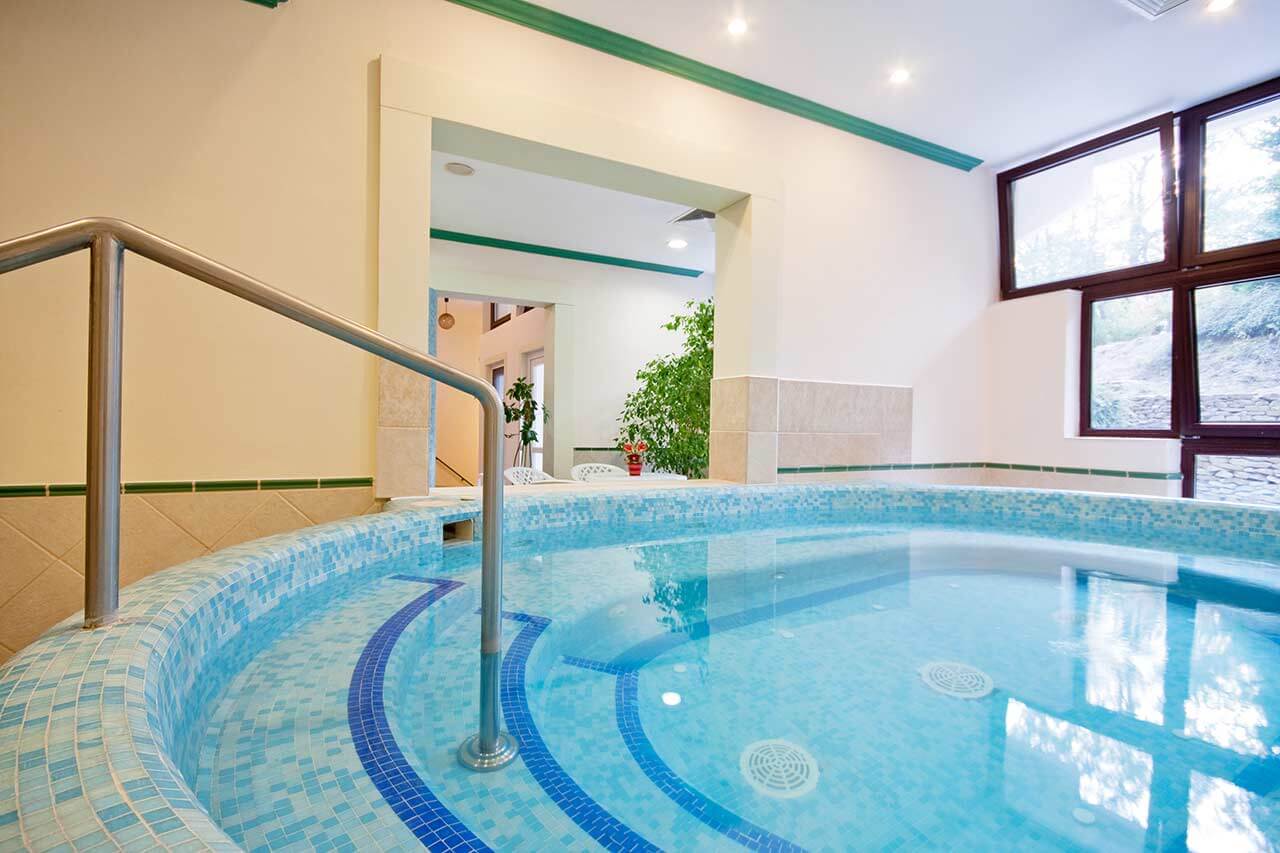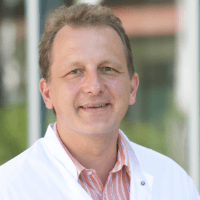
The program includes:
- Initial presentation in the clinic
- clinical history taking
- review of medical records
- physical examination
- laboratory tests:
- complete blood count
- general urine analysis
- biochemical analysis of blood
(uric acid and creatinine) - TSH-basal, fT3, fT4
- inflammation indicators (CRP, ESR)
- indicators blood coagulation
- ultrasound of joints
- x-ray scan of joints
- consultation of related specialists
- symptomatic specific treatment
- the cost of essential medicines and materials
- nursing services
- control examinations
- full hospital accommodation
- developing of further guidance
Required documents
- Medical records
Service
You may also book:
 BookingHealth Price from:
BookingHealth Price from:
About the department
The Department of Pediatric Rheumatology at the Academic Hospital for Pediatric Rheumatology of the University of Munich offers the full range of diagnostics and treatment of rheumatic pathology in children and adolescents. Particular attention is paid to the therapy of inflammatory rheumatic diseases, for example, juvenile rheumatoid arthritis, which is one of the most common ailments in this field of medicine. In addition, since 2004 the department has been conducting a special program of multimodal pain therapy aimed at treating chronic pain caused by diseases of the musculoskeletal system in children. The Chief Physician of the department is Prof. Dr. med.
Johannes-Peter Haas.
A great advantage of the department is a special school for children and teenagers. Since rheumatic diseases and chronic pains represent a serious problem, which requires a long-term treatment, a full-fledged school was established on the basis of the department. It helps children to keep up with their peers at school. The school works all year round and offers the services of competent teachers. Classes are held in small groups for students of all age groups (from the 1st to the 13th grade). Major subjects include German, English and French, mathematics, physics and Latin. All educational programs correspond to the classical school curriculum.
Most often, specialists have to deal with the treatment of the following pediatric rheumatic diseases:
- Juvenile rheumatoid arthritis
- Oligoarthritis
- Rheumatoid arthritis (seronegative and seropositive)
- Psoriatic arthritis
- Arthritis associated with enthesitis
- Iridocyclitis (anterior uveitis)
- Systemic juvenile idiopathic arthritis (immobility syndrome)
- Collagenoses
- Systemic lupus erythematosus (SLE)
- Chronic recurrent multifocal osteomyelitis (CRMD)
- Dermatomyositis
- Scleroderma
- Vasculitis
- Chronic pain (for example, in muscles, joints)
- Other diseases and pathological conditions
The therapeutic options of the department include:
- Drug therapy
- Non-steroidal anti-inflammatory drugs (NSAIDs) that have analgesic, anti-inflammatory and antipyretic properties. These include ibuprofen, diclofenac, naproxen, indomethacin, etc.
- Basic medicines for long-term use (for example, resochin, hydroxychloroquine, sulfasalazine, cyclosporine, etc.)
- Biopreparations (innovative f treatment method), for example, Enbrel, Humira, Remicade®, etc.
- Corticosteroids (can be used only if there is severe pain in the joints, severe inflammation of the eyes or significant damage to the heart)
- Local cortisone injections (mainly used to treat joint pain)
- Iridocyclitis drug therapy (provided with the help of eye drops or ointments containing cortisone)
- Other methods of drug treatment
- Treatment of chronic pain of the musculoskeletal system in children and adolescents
- Multimodal pain therapy (individually, in usual and temporary groups)
- Physiotherapy
- Psychological support
- Sport activities
- Sport games
- Hippotherapy
- Dance therapy
- Martial arts (without physical contact)
- Other techniques
- Special care for young patients with rheumatic diseases
- Physiotherapy (classes in the healing pool, massage, electrotherapy, targeted ergotherapy, daily exercise, etc.)
- Social and psychological support for young patients, their parents, relatives
- School for children (to ensure proper educational process during treatment)
- Other services
Curriculum vitae
- 1982 - 1984 Civil service: Children's Polyclinic, Ludwig Maximilian University of Munich.
- 1984 - 1992 Fellow of the Laboratory for Immunogenetics, Children's Polyclinic, Ludwig Maximilian University of Munich.
- 1985 - 1991 Study of Human Medicine, Ludwig Maximilian University of Munich.
- 1992 - 1993 Intern, Children's Polyclinic, Ludwig Maximilian University of Munich (Immunogenetics, General Pediatrics, Rheumatology).
- 1993 - 2001 Fellow, Interim Public Service (C1), Department and Polyclinic of Pediatric and Adolescent Medicine, University of Erlangen-Nuremberg.
- 2001 - 2008 Senior Fellow, Interim Public Service (C2), University of Greifswald, Leading Senior Physician, Department of General Pediatrics, Neonatology and Pediatric Intensive Care.
- 2008 Head of the Department of General Pediatrics; Deputy Head of the Department of Neonatology and Pediatric Intensive Care; Deputy Head of the University Hospital.
- 2008 W2 Professor (for life), General Pediatrics, University of Greifswald in the land of Mecklenburg-Western Pomerania.
- Since 01.04.2009, Medical Director of the Academic Hospital for Pediatric Rheumatology of the University of Munich and Chief Physician of the Department of Pediatric Rheumatology.
- 21.01.2010 Habilitation, Ludwig Maximilian University of Munich, appointed as a Visiting Professor.
- 01.09.2010 Co-owner and managing director of the Academic Hospital for Pediatric Rheumatology of the University of Munich.
Qualifications
- 13.05.1993 Doctoral dissertation defense, Doctor of Medicine, Ludwig Maximilian University of Munich.
- 01.08.1993 Admission to medical practice.
- 07.2000 Medical Specialist in Pediatrics.
- 11.2000 Additional qualification in Pediatric Intensive Care.
- 06.2001 Habilitation, Pediatrics, University of Erlangen-Nuremberg.
- 02.2003 Focus on Pediatric Rheumatology.
- 06.2003 Optional advanced training in the field of Pediatric Sonography.
- 08.2004 Additional qualification in Neonatology.
- 02.2005 Certified Pediatric Rheumatologist (GKJR).
- 06.2007 Expert in assessing the quality of medical care of the European Foundation of Quality Management (EFQM).
- 01.09.2008 W2 Professor, General Pediatrics, University of Greifswald.
- Since 01.04.2009, Chief Physician of the Academic Hospital for Pediatric Rheumatology of the University of Munich.
- 06.09. Permission for advanced training in Pediatrics, Bavarian Medical Association.
- 09.09. Permission for advanced training in Pediatric Rheumatology, Bavarian Medical Association.
- 01.10. PD, Ludwig Maximilian University of Munich.
- 01.11. Visiting Professor, Ludwig Maximilian University of Munich.
- 09.12. Certification in the field of Pediatric Sonography, DEGUM (level I).
Membership in Societies and Organizations
- German Society of Pediatrics and Adolescent Medicine (DGKJ).
- Society of Pediatric and Adolescent Rheumatology (GKJR).
- Board Member of the Society of Pediatric and Adolescent Rheumatology.
- Representative of the Commission on Pharmacotherapy and Vaccination (GKJR).
- Working Group on Pediatric Immunology (API).
- German Society of Rheumatology (DGRh).
- European Society of Pediatric Rheumatology (PRES).
- International Organization for Research in Pediatric Rheumatology (PRINTO).
- Society of Pediatric Nephrology (GPN).
- German Society of Pain Therapy.
- Association of Leading Physicians of German Clinics (VLK).
- Association of Leading Pediatricians and Pediatric Surgeons of Germany (National Association of Bavaria).
- Rheumatology Center Munich (RhZM).
- Board Member of the Initiative Program (treatment of children with rheumatic diseases).
- German Society of Pain Therapy.
- Professional Association of Pediatricians (BVKJ).
Photo of the doctor: (c) Kinderklinik Garmisch-Partenkirchen gGmbH
About hospital
The Academic Hospital for Pediatric Rheumatology of the University of Munich is one of the largest medical institutions in Europe, specializing in providing assistance to children and adolescents with rheumatic pathology. With over 60 years of clinical experience, the hospital offers the highest quality of medical services, combined with the unique professionalism of doctors. As an Academic Hospital of the Ludwig Maximilian University of Munich, the hospital has access to the very latest medical developments and treatment methods, which contributes to the optimal treatment of children. About 2,500 young patients are hospitalized annually. An outpatient clinic accepts about 900 patients a year. Since 2007, the hospital has been operating in accordance with the current DIN EN ISO 9001 standards.
It should be noted that the hospital follows its own comprehensive and interdisciplinary treatment concept, which has won international recognition. This concept combines medical treatment, care, psychological and psychosocial aspects of therapy, teaching children at the in-house hospital school. One of the priorities in the therapy is the provision of individualized medical care. Doctors spend a lot of time consulting, talking with the child and his parents so that they clearly understand what kind of disease their child is facing and what treatment options are optimal for them.
The primary task of doctors is the treatment of children and adolescents with various rheumatic diseases. Also, the scope of tasks of the hospital’s specialists is the provision of pain therapy for chronic pain in children, to improve their well-being and improve the quality of life. Pain therapy can be provided both individually and in groups. During the therapy, all the necessary specialists are involved: therapists, psychologists, psychotherapists, ergotherapists, social educators, specially trained nursing staff.
Photo: (c) depositphotos, (с) shutterstock
Accommodation in hospital
Patients rooms
The patients of the Academic Hospital for Pediatric Rheumatology of the University of Munich live in comfortable patient rooms with all the necessary amenities. The rooms are made in a childlike style, so that young patients feel at home. Naturally, the hospital operates the Rooming-in system, which involves the joint accomodation of a child and one of the parents. In addition, the hospital has excellent games rooms with table games, toys, books, construction sets, children's books, radio, CD devices, etc.
Meals and Menus
The patients of the hospital are offered delicious, balanced three meals a day: breakfast, lunch and dinner. All dishes on the menu comply with the recommendations on pediatric nutrition.
Further details
Standard rooms include:
